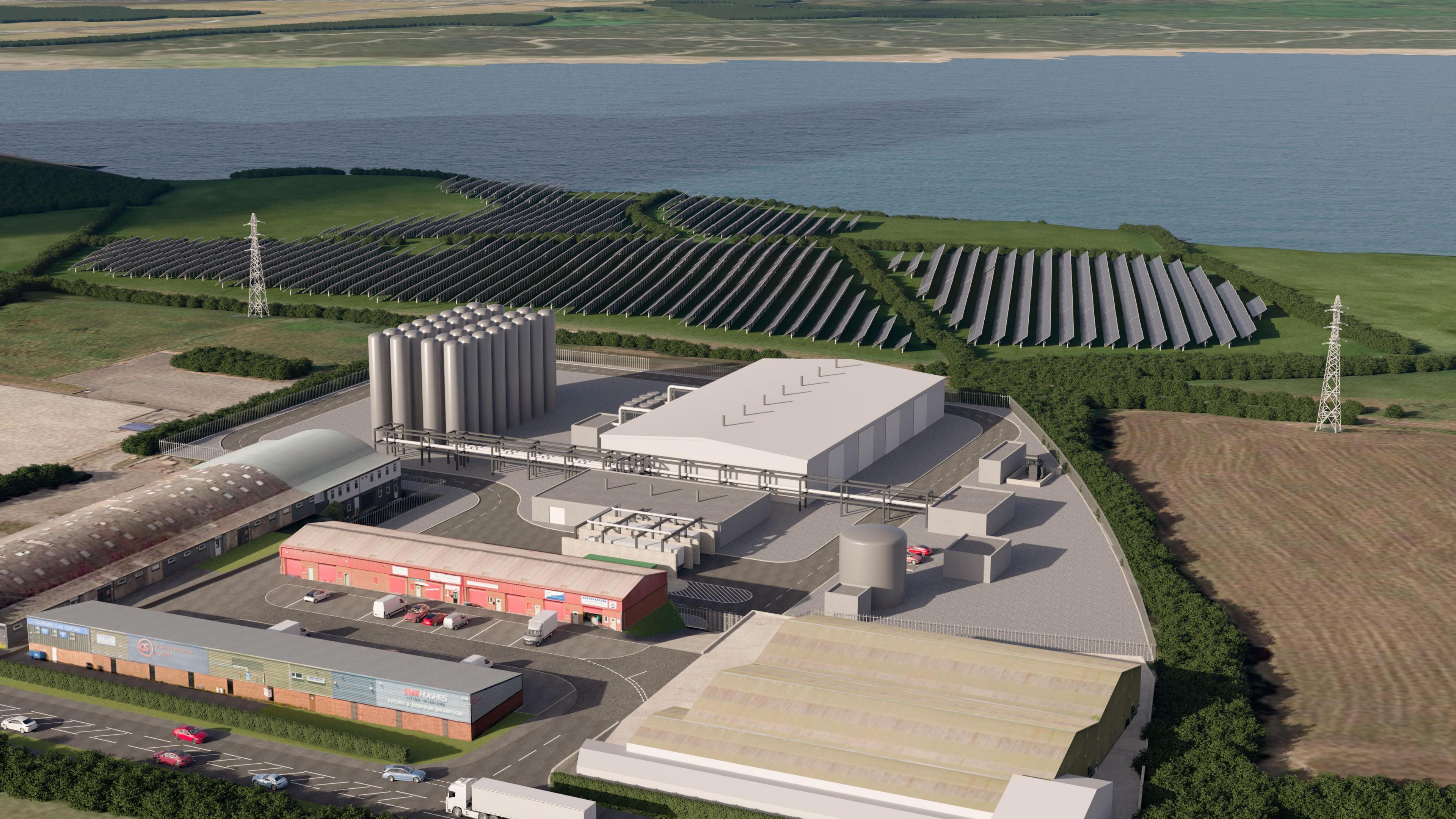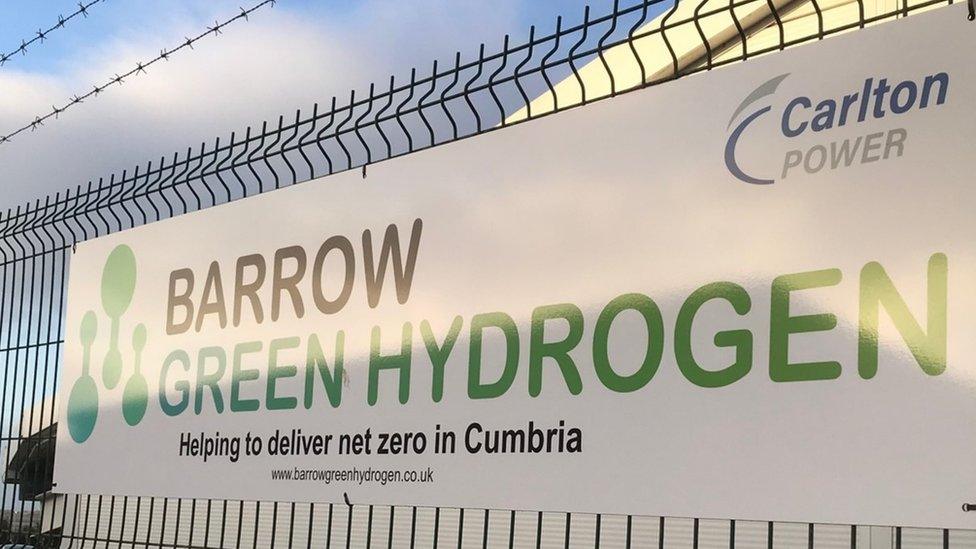Barrow green hydrogen plant given government funding

The plant would be built on Park Road in Barrow
- Published
Plans to build a hydrogen facility powered by renewable energy have been awarded government funding.
The Barrow Green Hydrogen project, run by energy company Carlton Power, would supply green hydrogen to the neighbouring Kimberley-Clark manufacturing plant in the Cumbrian town.
This would reduce the company's reliance on natural gas by up to 30%, Carlton said.
Hydrogen projects director Eric Adams said the energy firm was "delighted" with the funding announcement.
"Barrow is a pioneering project for Cumbria’s hydrogen ambitions,” he said.
Construction would bring about 200 jobs, with only a few people needed to run the site.
But it would also enable other local businesses to decarbonise, he said.
The £50m plant is to be built on the Meeting Industrial Estate on Park Road, with the gas channelled through a 500m pipe to Kimberley-Clark.
'Technical challenge'
It would use renewable or low-carbon electricity to split water into hydrogen and oxygen in a process known as electrolysis.
Further decarbonisation would be achieved by using the resulting hydrogen instead of natural gas, Mr Adams said.
The green hydrogen was more useful to Kimberley-Clark than simply using the electricity it was made with, he added.
"They have particular energy requirements, specifically around temperature, so the ability to use electricity to do that is more of a technical challenge than hydrogen," he said.
"They have a process on site whereby they use natural gas so switching from natural gas across to hydrogen is effectively very similar technically."
Funding for the project comes from the first round of the government’s Hydrogen Allocation Round, external with Carlton's projects in Greater Manchester and near Plymouth also successful in bidding.
Planning permission for the Barrow plant was given in June and it is expected to take about 18 months to build.
Subject to the company making the final decision with its financial partners to proceed early next year, the project should enter commercial operation within two years, Carlton said.
Follow BBC Cumbria on X (formerly Twitter), external, Facebook, external and Instagram, external. Send your story ideas to northeastandcumbria@bbc.co.uk.
- Published21 December 2022
